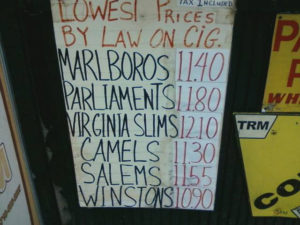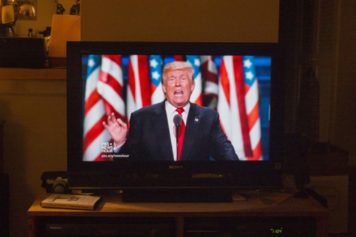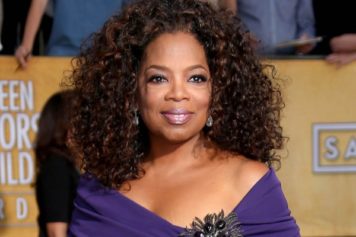
After the companies were sued by the Justice Department in 1999 for lying about the harmful effects of tobacco products, Judge Gladys Kessler found them guilty in 2006 and ordered the companies to pay for “corrective statements” to be published in the national media. The ruling stated that the companies must purchase full-page Sunday ads in 35 newspapers and commercials on either ABC, CBS or NBC network four days a week for a year, which would be worth an estimated $30 million to $45 million to the media companies. But there weren’t any Black newspaper, magazine, or broadcast outlets on the list drawn up by the judge, even though there were Spanish language media outlets.
The National Association of Newspaper Publishers (NNPA) and the National Association of Black Owned Broadcasters (NABOB), industry trade associations whose members reach more than 95 percent of African Americans, filed a friend-of-the-court brief last week objecting to the exclusion of all Black media companies in the proposed settlement.
Fox News also filed a brief to be part of the advertising deal, while the NAACP also filed an amicus brief on behalf of Black media.
A major claim made by the Black media is that the tobacco companies specifically targeted the Black community with their products.
“…The Defendants targeted the African America community with advertising campaigns which were delivered in part by their paid advertisements in African American print and electronic media,” the amicus brief states. “The proposed remedy does not list any media which specifically targets the African American community. To insure that the Corrective Statements reach the population that the Defendants targeted, the Court should require the parties to jointly select alternative newspapers that specifically target the African American community.”
“I’m just wondering who dropped the ball,” anti-smoking advocate La Tanisha Wright said to Al Jazeera America. “Why wasn’t there a bigger fight for African-Americans?”
Wright used to work for tobacco giant Brown and Williamson, her first job out of college after she was recruited at an NAACP job fair. But after years of being sent into predominantly African-American neighborhoods to push cigarettes to Blacks, particularly children, Wright quit in disgust and became a whistleblower and a tobacco-prevention advocate, using her insider’s knowledge.
Studies have shown that while African Americans smoke at a rate similar to other demographic groups, they are more likely to die from lung cancer, which is the third-largest killer for the Black community, after heart disease and stroke—which can also be caused by smoking, according to a 2012 report from the American Cancer Society.
“We smoke just about the same rate as the national average, slightly higher among African-American males, but our lung cancer rates and dying rates are almost three times as much,” said Delmonte Jefferson, executive director of the National African American Tobacco Prevention Network (NAATPN).
During one court session, Dave Goerlitz, a former model for RJ Reynolds advertisements, testified that when he asked an executive why he didn’t smoke, the unnamed executive responded, “We don’t smoke that s***, we just sell it. We reserve that right for the young, the poor, the Black and the stupid.”
Judge Kessler seems receptive to the Black media claims, saying at a Jan. 22 hearing that she was “concerned” about the distribution of the corrective statements and indicating that she is sympathetic to the requests from civil rights groups.
The biggest question in the suit is how much longer the tobacco companies will drag it out, using their teams of high-priced lawyers to keep churning out appeals. Experts estimate that it would be well into 2015 before any of the ads will be shown in the media, if they don’t get dragged out beyond that.
“(Tobacco companies) have pockets deep enough to drag this on forever,” Wright told Al Jazeera. “At some point, they have to have this campaign for the African-American community. I just hope it doesn’t take too long.”


